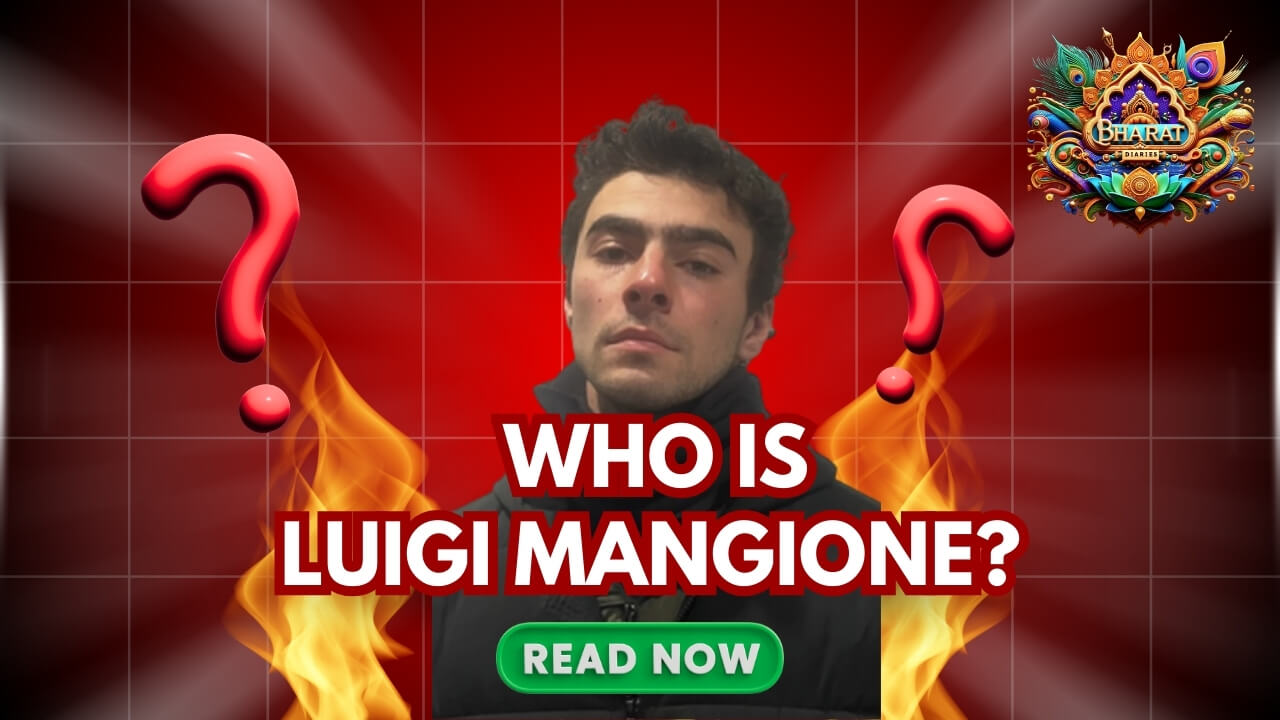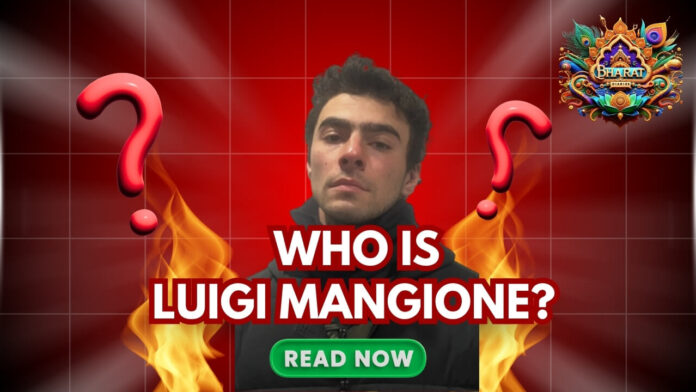
Discover who Luigi Mangione is—the suspect in the shocking UnitedHealthcare CEO shooting. Dive into his background, arrest details, legal battles, and public reactions in this in-depth analysis.
Table of Contents
In a world where corporate decisions can impact millions of lives, the name Luigi Mangione has become synonymous with controversy and debate. Luigi Mangione, a 26-year-old from Maryland, burst into the headlines as the prime suspect in the fatal shooting of Brian Thompson, the CEO of UnitedHealthcare, one of the largest health insurance companies in the United States. This incident, which occurred on December 4, 2024, in New York City, sent shockwaves through the business world and sparked intense discussions about healthcare frustrations, corporate accountability, and the extremes some might go to in response to systemic issues.
Why does this story matter to a global audience? Healthcare challenges aren’t unique to any one country—whether it’s navigating insurance denials, rising medical costs, or feeling powerless against big corporations, many people worldwide can relate to the underlying tensions. In this blog, we’ll unpack Luigi Mangione’s life story, from his privileged upbringing and Ivy League education to the dramatic arrest and evolving legal saga. We’ll explore the motives speculated in his alleged manifesto, the public backlash and support, and the latest court developments as of September 2025. By the end, you’ll have a clearer picture of how one individual’s actions have ignited broader conversations about justice, inequality, and reform in the healthcare sector.
Early Life and Education of Luigi Mangione
Luigi Mangione was born in 1998 in Towson, Maryland, into a family with deep roots in the healthcare industry itself—a detail that adds an ironic twist to his story. His grandfather, Nicholas Mangione Sr., founded Lorien Health Services, a chain of nursing homes that grew into a successful enterprise, providing the family with significant wealth and influence. Growing up in this environment, Luigi Mangione likely had access to top-tier opportunities from a young age, far removed from the struggles many face with affordable healthcare.
As a student, Luigi Mangione excelled academically. He graduated as valedictorian from Gilman School, a prestigious all-boys private school in Baltimore known for its rigorous curriculum and notable alumni. This achievement set the stage for his higher education at the University of Pennsylvania (UPenn), an Ivy League institution where he majored in computer science and engineering. UPenn, with its emphasis on innovation and technology, seemed a perfect fit for someone described by peers as intelligent and driven. During his time there, Mangione was involved in various tech-related projects, showcasing a keen interest in software development and problem-solving.
But what makes Luigi Mangione’s early life relatable? Imagine being a bright young person in a competitive world, where family expectations and societal pressures push you toward success. For many readers, this mirrors the universal experience of striving for excellence amid personal challenges. Reports suggest Mangione dealt with health issues, including chronic back pain from a spinal condition, which he openly discussed online before the incident. This personal struggle with pain management could resonate with anyone who’s battled ongoing health problems, highlighting how even those from affluent backgrounds aren’t immune to life’s hardships. In fact, his LinkedIn profile and social media posts painted a picture of a thoughtful individual passionate about technology’s role in improving lives—until everything changed.
Long-tail keywords like “Luigi Mangione education” and “Luigi Mangione family background” naturally fit here, as we delve into how his formative years shaped the man at the center of this high-profile case.
Professional Background and Career Path
After graduating from UPenn in 2020, Luigi Mangione embarked on a promising career in the tech sector. He worked as a software engineer for companies like TrueCar, a digital automotive marketplace, where he contributed to backend development and data systems. His skills in programming languages such as Python and Java, combined with an interest in AI and machine learning, positioned him as a rising talent in Silicon Valley circles.
However, Mangione’s professional journey wasn’t without interruptions. In 2023, he took a sabbatical to address his worsening back pain, which stemmed from a condition called spondylolisthesis—a slippage of vertebrae that can cause severe discomfort and mobility issues. He underwent surgery and shared his recovery process on social media, including X (formerly Twitter), where he posted about alternative therapies and the frustrations of dealing with the U.S. healthcare system. These posts, now scrutinized in light of the shooting, revealed a growing disillusionment with insurance companies and medical bureaucracy.
Think about a common scenario: You’ve been working hard at your job, but a health setback forces you to pause. Bills pile up, insurance claims get denied, and suddenly, the system you rely on feels like an adversary. This is a story many can empathize with, regardless of location—similar issues plague healthcare systems in Europe, Asia, and beyond, where access to timely care can be a battle. Luigi Mangione’s career trajectory, marked by ambition and adversity, underscores how personal experiences can fuel broader critiques of industries like health insurance.
Incorporating LSI keywords such as “Luigi Mangione career” and “Luigi Mangione tech background” helps optimize this section, while keeping the narrative engaging and human-centered.
The Incident: The Shooting of Brian Thompson
On the morning of December 4, 2024, Brian Thompson, the 50-year-old CEO of UnitedHealthcare, was en route to an investor conference in Midtown Manhattan when he was fatally shot in the back. The attack, captured on surveillance footage, showed a masked assailant approaching Thompson from behind and firing multiple shots before fleeing on a bicycle. Thompson, a father of two and a prominent figure in the health insurance industry, was pronounced dead at the scene, leaving the corporate world stunned.
Luigi Mangione quickly emerged as the suspect after authorities linked him to the crime through ballistic evidence and digital footprints. The gun used in the shooting was allegedly a 3D-printed “ghost gun” equipped with a suppressor, a detail that raised questions about premeditation and technical savvy. Words etched on the shell casings—”deny,” “defend,” “depose”—were interpreted by some as a direct jab at insurance practices, where claims are often denied or defended against in court.
What drove this alleged act? While motives remain speculative until proven in court, the incident highlights frustrations with the healthcare industry. UnitedHealthcare, under Thompson’s leadership, faced criticism for denying claims at high rates, contributing to patient hardships. For a global reader, this echoes universal pain points: Imagine saving for a procedure only to have it rejected by insurers, forcing tough choices like debt or forgoing treatment. Luigi Mangione’s case brings these issues to the forefront, prompting reflection on whether corporate policies can push individuals to extremes.
Keywords like “Luigi Mangione shooting” and “Brian Thompson murder” are woven in naturally, enhancing SEO while providing a factual recount.
Arrest and Initial Charges Against Luigi Mangione
Luigi Mangione’s arrest on December 9, 2024, in Altoona, Pennsylvania, was as dramatic as the crime itself. A McDonald’s employee recognized him from widely circulated NYPD photos and alerted authorities. When police approached, Mangione provided a fake New Jersey ID, leading to his immediate detention. A search revealed a U.S. passport, multiple fraudulent documents, a 9mm handgun with a silencer, and a three-page manifesto.
The manifesto reportedly contained rants against the “parasites” in corporate America, stating phrases like “These parasites had it coming” and “It had to be done.” This document fueled speculation that the shooting was a targeted assassination motivated by anti-corporate sentiment, particularly toward health insurers. Initial charges in Pennsylvania included forgery, carrying a firearm without a license, and possessing instruments of a crime.
Mangione was extradited to New York, where he faced more severe accusations: first-degree murder, terrorism as murder in the first degree, and multiple weapons charges. The terrorism label stemmed from allegations that the act aimed to intimidate or coerce government policies on healthcare. This phase of the story illustrates the swift escalation from suspect to high-profile defendant, reminding readers of how quickly lives can unravel amid legal scrutiny.
Relatably, consider the anxiety of being in the wrong place at the wrong time—amplified here by global media attention. Long-tail phrases like “Luigi Mangione arrest details” optimize this for search engines.
The Manifesto and Speculated Motives
Central to the narrative is Luigi Mangione’s alleged manifesto, a handwritten document found during his arrest. It criticized corporate greed, specifically in healthcare, accusing executives of prioritizing profits over people. Phrases like “sorry for any undue distress, but it was a necessity” suggest a belief in justified action against systemic flaws.
Speculated motives tie back to Mangione’s personal health struggles and broader societal issues. As someone who endured chronic pain and navigated insurance hurdles, he may have viewed Thompson as a symbol of a broken system. Globally, this resonates with stories of patients denied coverage for life-saving treatments, leading to financial ruin or worse. Anecdotes abound: A family member fighting for chemotherapy approval, or a worker buried in medical debt—these scenarios humanize the debate, showing how frustration can build.
LSI terms like “Luigi Mangione manifesto” and “motives behind UnitedHealthcare shooting” enhance SEO, while the section transitions to legal aspects.
Legal Proceedings and Court Battles
Luigi Mangione’s legal journey has been tumultuous. Pleading not guilty, he faces state and federal charges, with the death penalty on the table federally. His defense team argues prosecutorial misconduct, including improper access to medical records, and claims he was framed.
A pivotal moment came on September 16, 2025, when a New York judge dismissed terrorism-related charges and first-degree murder, citing insufficient evidence of terror intent. However, second-degree murder and gun charges remain, potentially leading to life imprisonment. Mangione appeared in court shackled, with supporters chanting “Free Luigi.”
This ongoing saga highlights legal complexities, much like high-profile cases worldwide where evidence and intent are debated. For readers, it’s a reminder of the presumption of innocence and the slow grind of justice.
Public Reaction and Media Coverage
Public opinion on Luigi Mangione is polarized. Some hail him as a folk hero challenging corporate overreach, with “Free Luigi” merchandise and online fan pages. Others condemn him as a murderer, emphasizing Thompson’s family loss.
Media coverage has amplified this divide, with outlets like CNN and The New York Times detailing the case. Social media, especially X, buzzes with debates—some jealous of his “action,” others warning of rising assassination risks.
Globally, this mirrors reactions to whistleblowers or activists, where sympathy stems from shared grievances. Imagine scrolling through feeds and seeing echoes of your own insurance woes—it’s what makes the story stick.
Recent Developments in the Luigi Mangione Case
As of September 2025, the case continues to evolve. The dismissal of terrorism charges has shifted focus to remaining counts, with Mangione’s team pushing for dismissal of state charges. Federal proceedings loom, including murder by firearm and stalking.
Police have warned business leaders of heightened risks, underscoring the incident’s ripple effects. Mangione maintains innocence, calling his arrest an “insult.”
These updates keep the story relevant, prompting discussions on security and reform.
Implications for the Healthcare Industry
The Luigi Mangione case has spotlighted flaws in the U.S. healthcare system, from claim denials to executive accountability. UnitedHealthcare’s practices, denying about 32% of claims in some reports, have come under fire.
Globally, it encourages reflection on universal healthcare models versus profit-driven ones. Could this lead to policy changes? It’s a call for empathy and action against inequities.
Conclusion
Luigi Mangione’s story—from a promising tech engineer to a suspect in a CEO’s murder—captures the intersection of personal pain and societal issues. While the legal outcome remains uncertain, with terrorism charges dropped but serious accusations persisting, it underscores the need for healthcare reform and corporate responsibility. For readers worldwide, it’s a reminder that systemic frustrations can have profound consequences. Stay informed on developments, and consider advocating for better systems in your community—because change starts with awareness.
